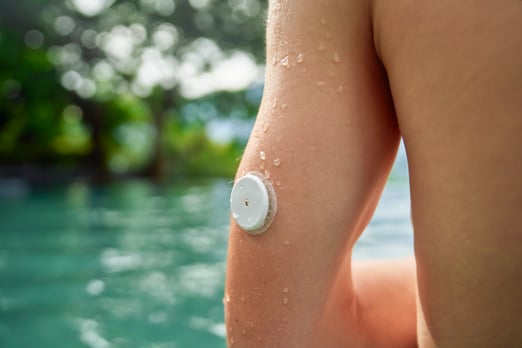When it comes to printed electronics for medical and wearable products, making the right choice for your manufacturing partner is critical. These specialized devices demand precision, compliance with stringent regulations, and a commitment to quality. In our experience, there are several key considerations and strategies that will help when it comes time to select the perfect manufacturer.

Prioritizing Experience and Expertise
Experience and expertise are the cornerstones of a reliable manufacturing partnership. Look for a company with a proven track record in producing medical and wearable devices. Their experience is invaluable, as it equips them with the knowledge necessary to navigate the unique challenges in this niche.
In addition to their overall experience, evaluate their expertise in printed electronics technology. This should encompass their proficiency in working with flexible substrates, conductive inks, and the seamless integration of sensors and components. Seasoned experts in this field can provide valuable insights and recommendations to enhance your product's performance and reliability. You’ll want to think of them as an extension of your own team.
Your supply chain partner should design and optimize the products according to your specifications and requirements, providing you with prototypes, samples, and feedback before proceeding to mass production. They should also be able to handle complex and customized designs that involve multiple materials, layers, and components.
Prototyping and Development Support
When dealing with delicate and intricate medical wearables, effective prototyping and development support can save you time and resources.
Partner with a manufacturer that offers robust prototyping and NPI services. Collaborating from the early stages allows for the optimization of design, materials, and manufacturing processes. This iterative approach ensures that your final product meets the highest quality standards and regulatory requirements, reducing the risk of costly delays and revisions.
Quality and Certification
Ensuring the highest quality standards in your supply chain is obvious, and when it comes to medical and wearable electronics, compliance with international quality standards and regulatory requirements is non-negotiable. You will want a manufacturer who adheres to standards like ISO 13485.
Furthermore, ask about their experience in regulatory submissions and approvals, especially if your project is in the medical field. A manufacturer with a history of successful approvals from regulatory bodies like the FDA is a strong indicator of their commitment to quality and compliance.
Manufacturing Capabilities
When selecting a manufacturer for medical and wearable electronics, assess their production capabilities. Do they have advanced and appropriate technologies to produce your products with high quality and efficiency? They should be able to use various printing methods, such as inkjet, screen, flexo, or gravure printing, to create the electronic circuits and components on flexible substrates. Ask if they use various post-processing techniques, such as curing, laminating, cutting, or folding, to finish the products.
Additionally, evaluate their ability to scale production. Your goal is to partner with a manufacturer who can accommodate increasing demand as your product gains market acceptance. Discuss their past experiences in scaling up production and managing supply chain challenges related to growth.
An ideal partner can combine your sub-assemblies into a finished product by leveraging a vertically integrated supply chain which may include multiple manufacturing disciplines, such as plastic injection molding, stamped metal and cable and wire harnesses. To reduce your overall supplier count, find one who can fully assemble, package, and provide distribution services which fit your customer needs.
 Supply Chain and Materials
Supply Chain and Materials
You likely already understand the critical role of a reliable supply chain in the success of any project. Do your due diligence to ensure the manufacturer has established relationships with suppliers for critical materials, including conductive inks, substrates, and components.
Collaborate with the manufacturer to select the right materials for your project. For medical devices, biocompatibility is a major concern, while wearables require materials that balance durability, flexibility, and conductivity.
Design and Testing Services
It is imperative that you evaluate whether the manufacturer can provide comprehensive design and testing services. These may include reliability testing, environmental testing, and usability testing.
Check if they have in-house testing facilities or partnerships with third-party testing providers. Access to such services within the manufacturing process streamlines the development of your product, ensuring compliance with regulatory standards and top-tier quality.
Location and Communication
The location of your manufacturing partner can significantly impact both communication and logistics. Proximity can be ideal for efficient collaboration and quality control. However, it is possible to collaborate effectively with manufacturers worldwide and you may find lower overall costs when partnering with an Asian supplier, especially when producing at larger economies of scale. Weigh the advantages of proximity against other factors and determine the best fit for your project. That being said, it is always recommended to geographically diversify your supply chain.
Your manufacturing services partner should have the capacity and flexibility to deliver the products on time and within budget. They should be able to handle large-scale production orders as well as small-batch or customized orders. They should also be able to provide you with after-sales support and service, such as reverse logistics and repair, maintenance, or troubleshooting of field units.
Choosing the right manufacturer for medical and wearable printed electronics is a critical decision, and supply chain professionals play a pivotal role in this process. By prioritizing experience, quality, compliance, and collaboration, you can ensure the success of your projects in this specialized field. These considerations will lead to a manufacturing partnership that delivers high-quality, compliant products and positions you for success in the dynamic world of medical and wearable printed electronics.




.jpg?width=176&height=56&name=MR_associatedNetwork_logo%20(1).jpg)